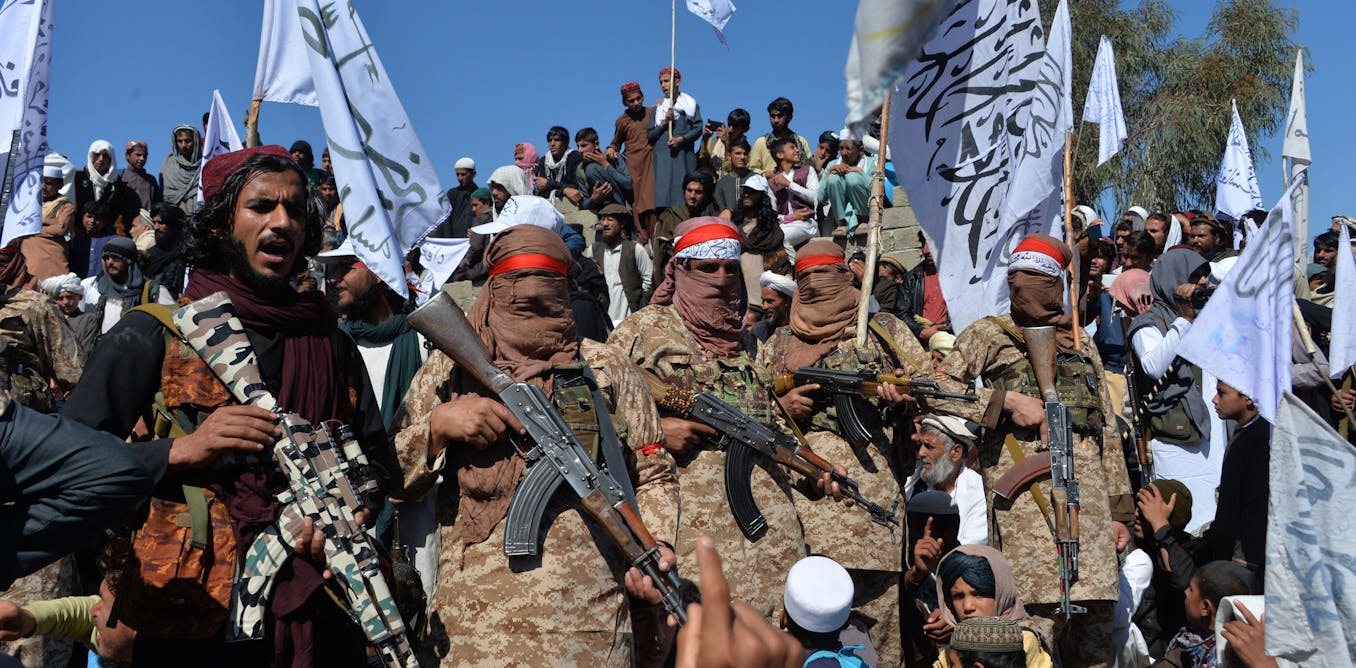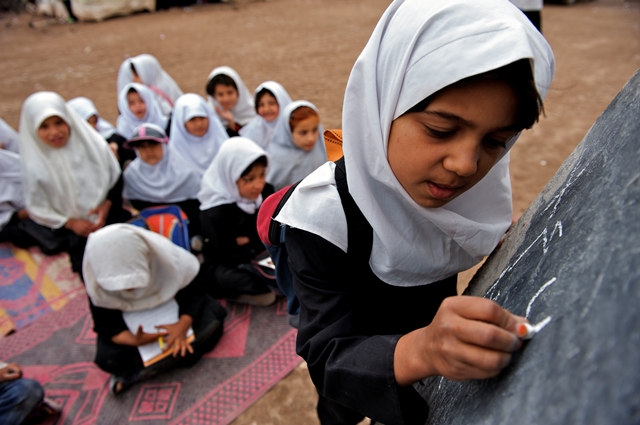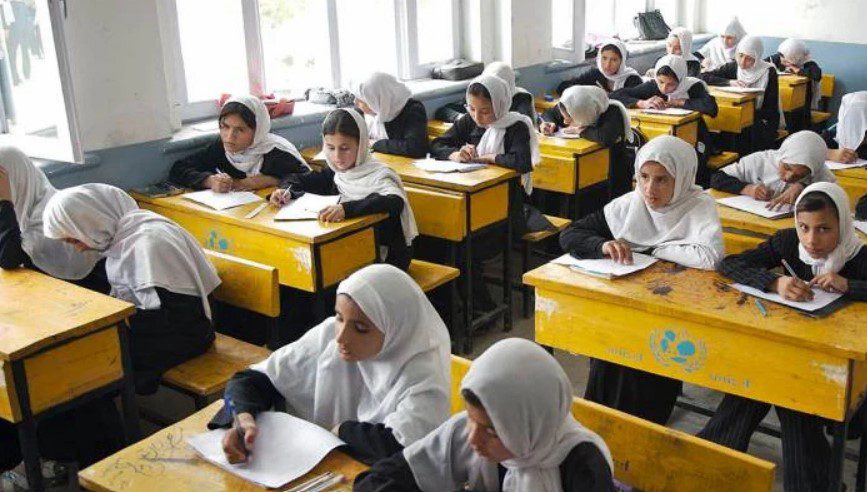Introduction:
Afghanistan tumbled under the Talibanization of Afghanistan. The existence of ladies and young ladies the nation over has been seriously affected since the takeover. Young ladies are restricted from going to optional school, ladies can’t proceed with work, and savagery against ladies is on the ascent.

Afghanistan Schooling Framework
Afghanistan is confronting a crucial point in time wherein worldwide help is desperately expected to forestall the breakdown of its schooling framework.

Propels in training have come to represent the accomplishments in Afghanistan’s remaking in the course of the most recent 20 years, with more than 9 million youngsters selected for school.
Afghanistan and UN:
Be that as it may, as per the UN, there are as of now multiple million out-of-younger students, with the greater part of them being young ladies.
The complex monetary and philanthropic emergency that is immersing the nation is relied upon to deteriorate in the coming year and take steps to fix the advancement of the past twenty years.
Countless instructors have been neglected for very nearly a half year, with educators in Herat territory fighting to request that the Taliban pay their pay rates.

There is a genuine danger that the amount and nature of training will drop steeply, with the madrassa reappearing as the principal type of tutoring in Afghanistan and a lost age of Afghan kids being denied instructive freedoms.
To alleviate the emergency, training should be focused on legislative issues. The sacredness of training is a profoundly held social value, partially established in the centrality of instruction in Islam.
“Peruse, for the sake of your Lord,” is the principal stanza of the Quran that was uncovered by Prophet Mohammad (PBUH).
Educational Problems in Re-Talibanized Afghanistan:
With the Taliban in power, it is verifiable that maintaining the right to training is, at last, the gathering’s liability. Notwithstanding, given the size of the test, worldwide help is urgently required.
The accompanying messages ought to be noticed by Afghan and global entertainers as they cooperate to determine the instructive emergency.
In the first place, a portion of the sporadic assertions given by the Taliban about young ladies’ schooling or the unacceptability of school structures for sex isolation.
It has given the feeling that its appearance brought about the instructive emergency, the current circumstance established profound primary and long-standing difficulties that originate before the Taliban.
These foundational shortcomings, however, are not restricted to low instructional quality and social limitations on young ladies’ admittance to schooling.
The Afghan government’s low limit and dependence on help, and the troubles in boosting prepared instructors to move to provincial and secluded regions.
Second, these pre-existing conditions limit what the Taliban could be reasonably expected to achieve in a short time frame. The complete return of girls to school is not only a top demand of the international community but a universal right and the engine for the development of the country.
The international community is right to fear the Taliban may restrict educational freedom for women and girls, as it did when it ruled most of Afghanistan from 1996 to 2001.
However, following its return to power, the Taliban has challenged such fears, pointing to the fact that girls in the provinces of Kunduz, Balkh, and Sar-e-Pul have returned to school.
Third, and most vitally, Afghanistan’s schooling framework requires an enormous unfamiliar guide to remain above water. There are around 220,000 educators in the Afghan government-funded schooling framework.
With such sizeable finance, the Ministry of Education represents an immense level of the public authority financial plan in Afghanistan.
The fact that Afghan instructors have not accepted their compensation for just about a half year is the single biggest hindrance to continuing the ordinary instructive cycle.
Fourth, an emphasis on the nature of instruction in Afghanistan is similarly just about as significant as growing training. The significant disruption to educator improvement and lack of instructors requires the educational system to quickly build its ability and carry out another cross-country plan of hands-on preparation.
This venture could best be regulated by the United Nations with the help of driving territorial associations with mastery in instructive turn of events, for example, the Doha-based Education Above All.
Obstacles to Reality:
While we realize the struggle affected Afghanistan’s schooling framework, no extensive information is accessible on the number of schools in Afghanistan that have been harmed accordingly.
Thusly, respectful societies, non-governmental associations, and global organizations should get this data to evaluate the extent of difficulties and devise systems for remaking training.
The Taliban communicated an ability to draw in with the worldwide local area on full admittance to instruction and invited endeavors to confirm and screen progress to enlist ladies and young ladies in school at all levels.
UN hosted a panel for Women:
Ms. Mohammed was talking during a board conversation on supporting a future for young ladies’ schooling in Afghanistan, which hung on the edges of the UN General Assembly.
Conspicuous ladies advocates from Afghanistan and the global-local area likewise partook in the conversation, held both on the web and face to face, and directed by BBC reporter Laura Trevelyan from UN Headquarters in New York.
Inquired as to whether a global guide to Afghanistan could be contingent on training for ladies and young ladies, Ms. Mohammed reacted “totally,” expressing that the issue “keeps on coming forthright” in continuous conversations with the accepted specialists.
“This is the place where we must have resolve: that acknowledgment accompanies your capacity to be essential for a worldwide family. That has a specific arrangement of qualities and freedoms that should be clung to. Also, schooling is straightforward and focused, particularly for young ladies and for ladies.”
The delegated UN boss asked the worldwide local area to draw on Afghan ladies’ abilities and back them in forestalling an inversion of twenty years of gains in young ladies’ schooling.
Ms. Mohammed additionally reminded Afghan ladies that the UN is as yet on the ground, conveying for individuals. “You can be guaranteed that we will keep on intensifying your voices and make it a zero condition that young ladies should have training before the acknowledgment of any Government that comes in,” she said.
Instruction is both a right and an interest in a nation’s future, said Henrietta Fore, Executive Director of the UN Children’s Fund, UNICEF. Before the Taliban takeover, UNICEF was working in the spaces of Afghanistan under the gathering’s influence.
She said the office discovered that numerous Taliban individuals accepted schooling was significant for their young men and young ladies.

Even though UNICEF significantly increased the number of schools open in Afghanistan, with 10 million youngsters joining in, 4,000,000 of them young ladies, the nation was at that point falling behind in instructive arrangement. Coronavirus has additionally affected advancement.
Conclusion:
Afghanistan’s schooling framework has been crushed by over thirty years of supported clash. For a considerable lot of the nation’s kids, finishing grade school stays a far-off dream – particularly in provincial regions and for young ladies – regardless of late advancement in raising enrolment.
The underlining explanations behind low young ladies’ enrolment is weakness and customary standards and practices identified with young ladies’ and ladies’ job in the general public. Different reasons can be clarified partially by the absence of female educators, particularly in country schools.
A solid instruction framework is critical to getting more youngsters in school, keeping them there, and assisting them with becoming sound and dependable residents.
Tutoring expands future wages on average by 3.9%, working at the public, common, and local area levels in close cooperation with the Ministry of Education and different accomplices.
Our help centers around the weakest individuals in hindered regions, especially young ladies, to battle the absence of learning brought about by neediness, separation, and struggle.
Hira Naz - a graduate of International Relations. She is interested in political economy and human rights. She observes and analyzes the socio-political events in contemporary global arena.






